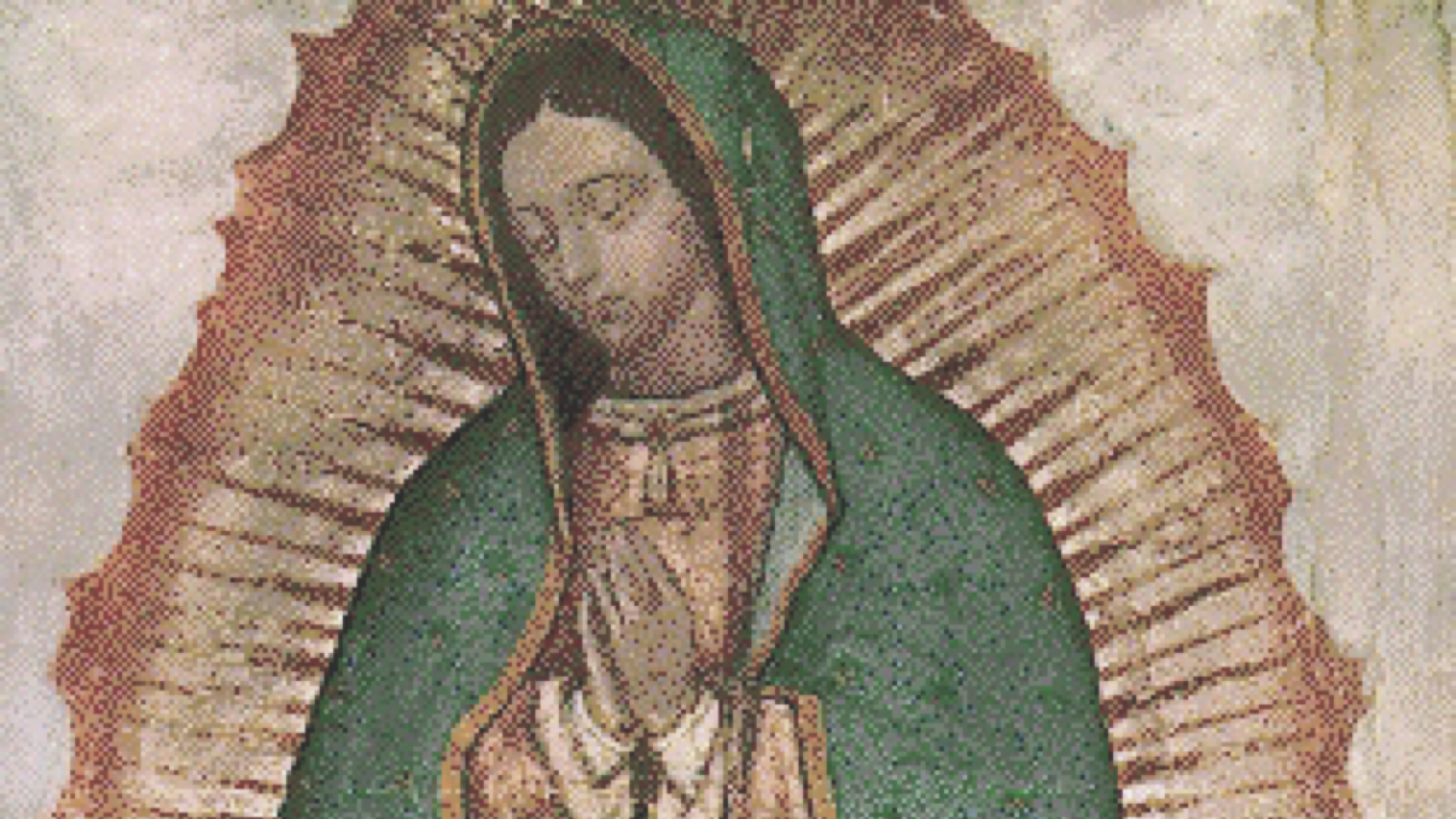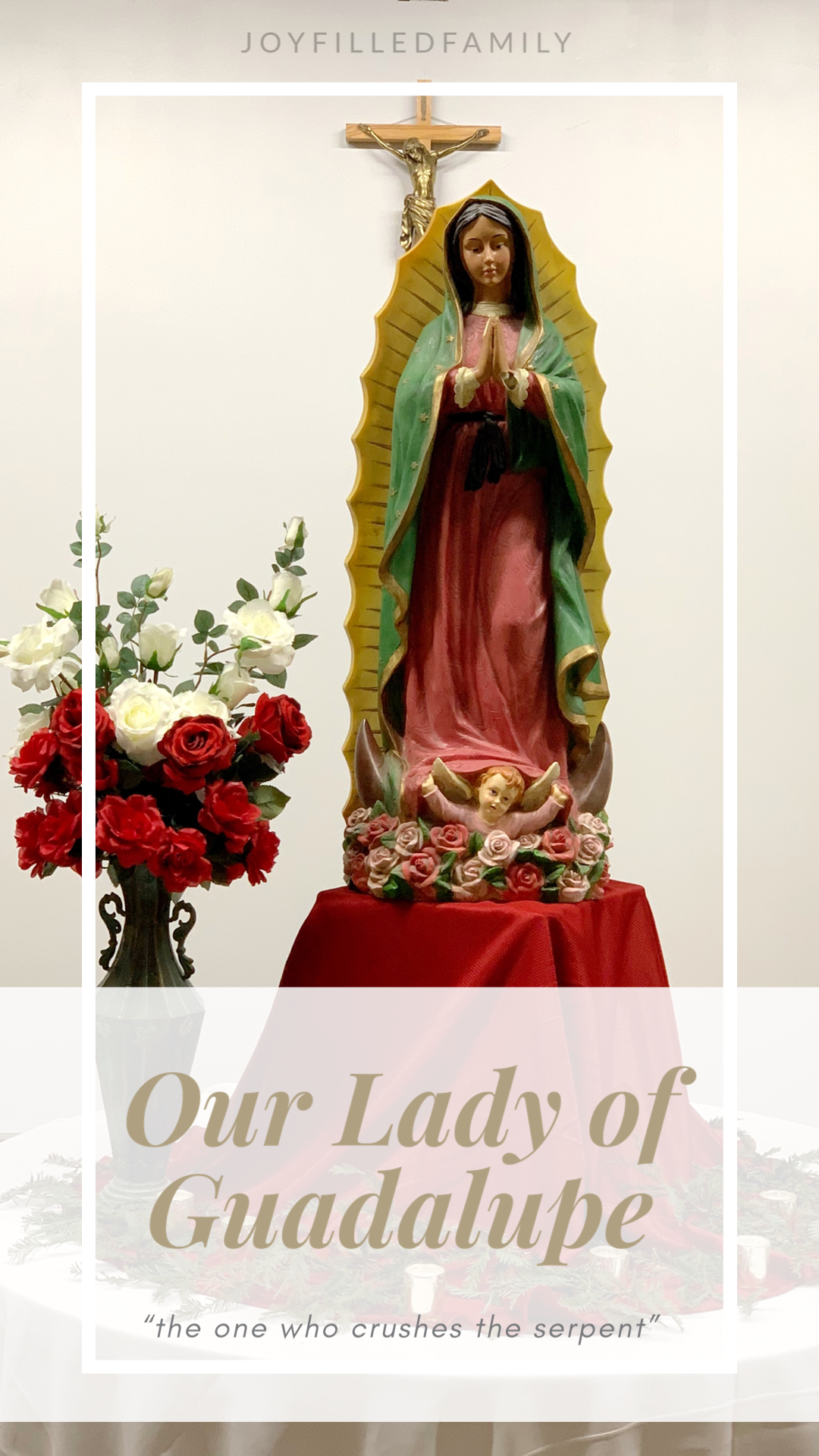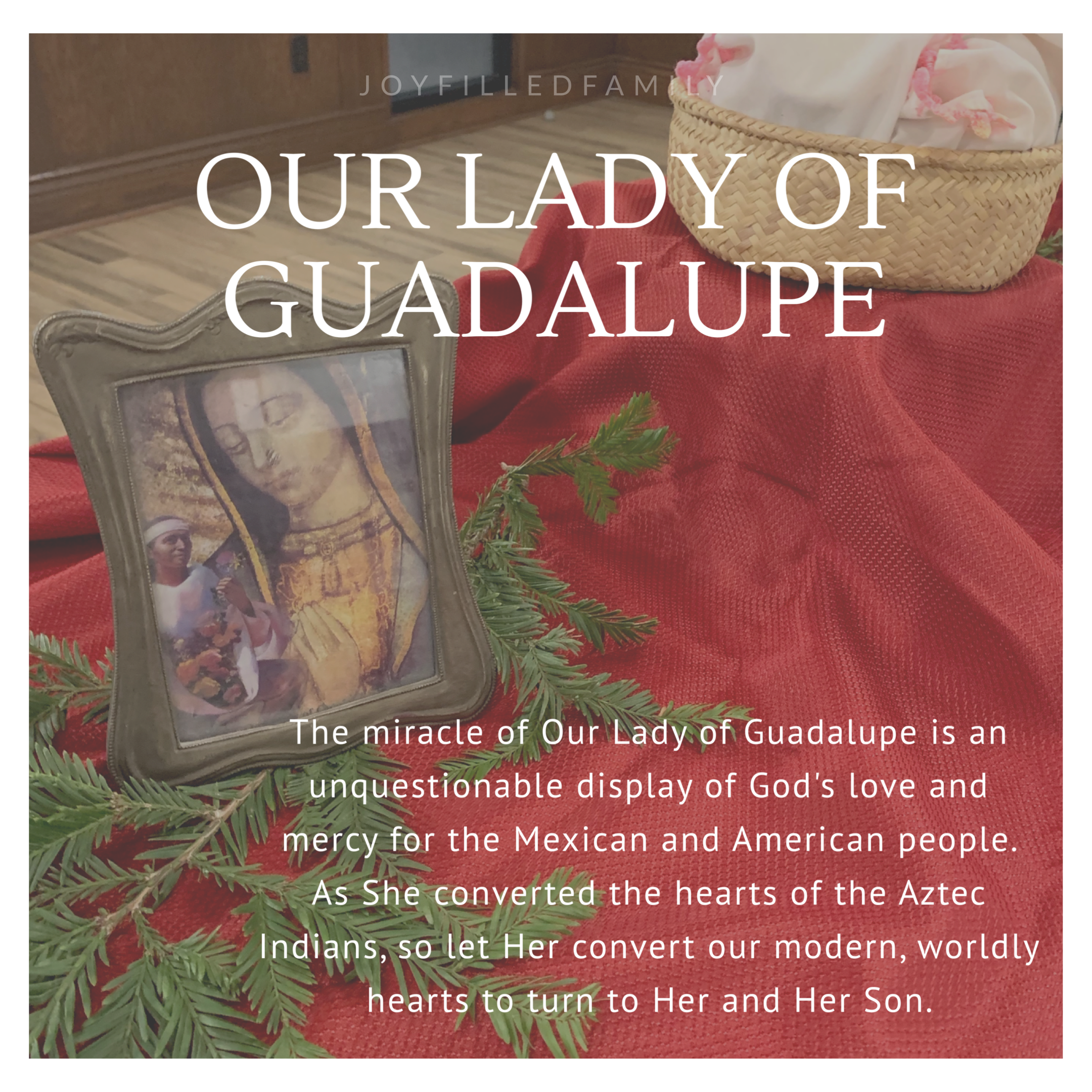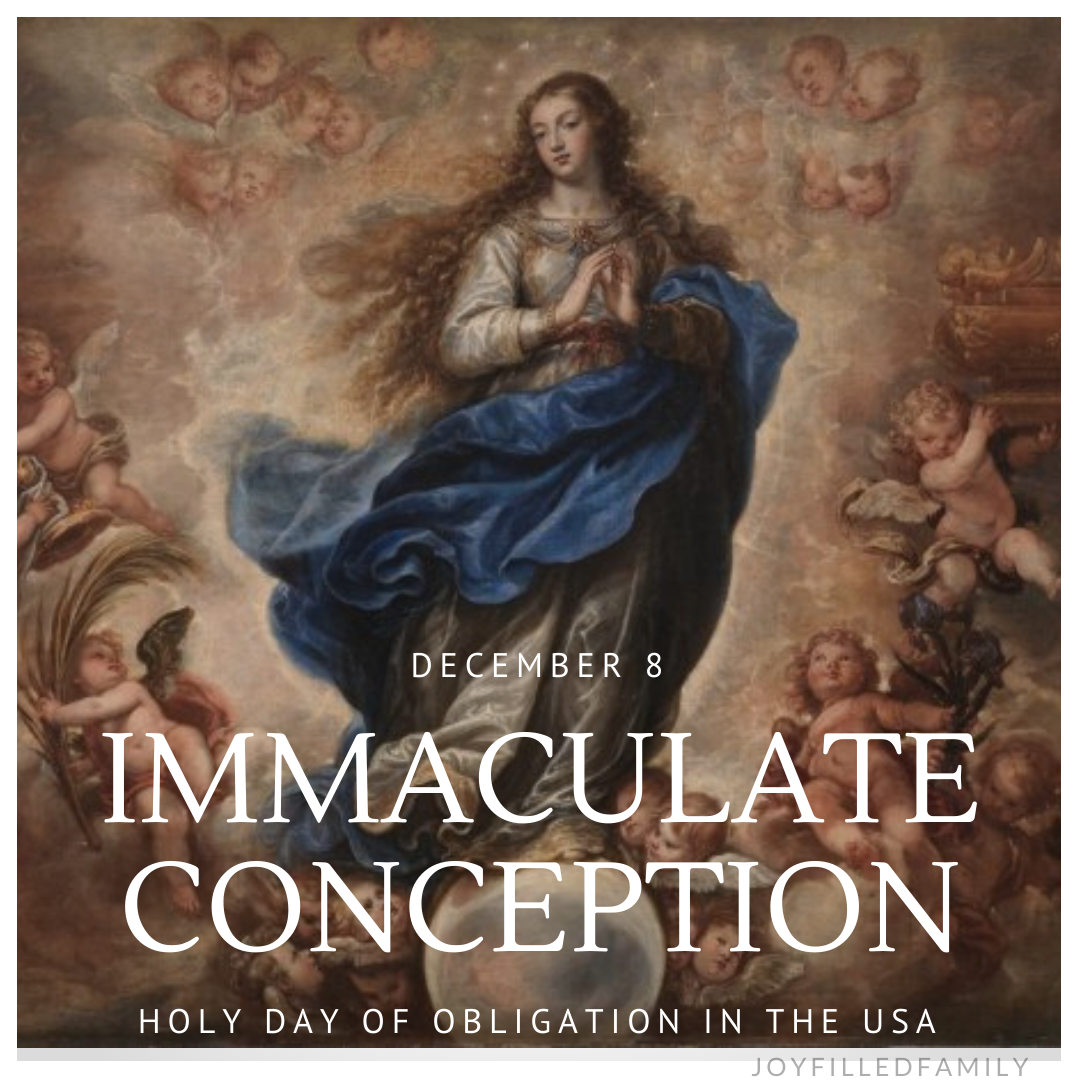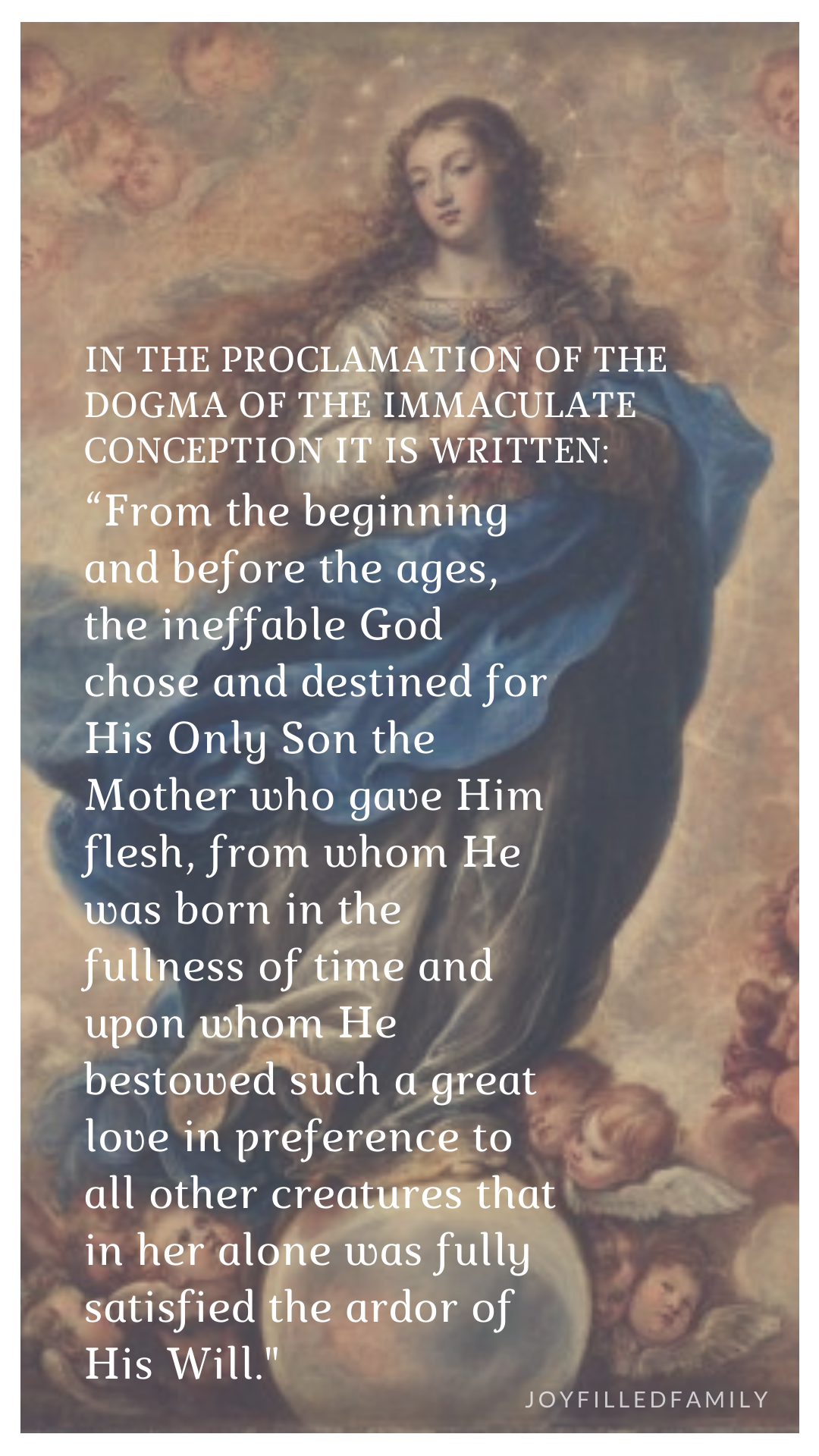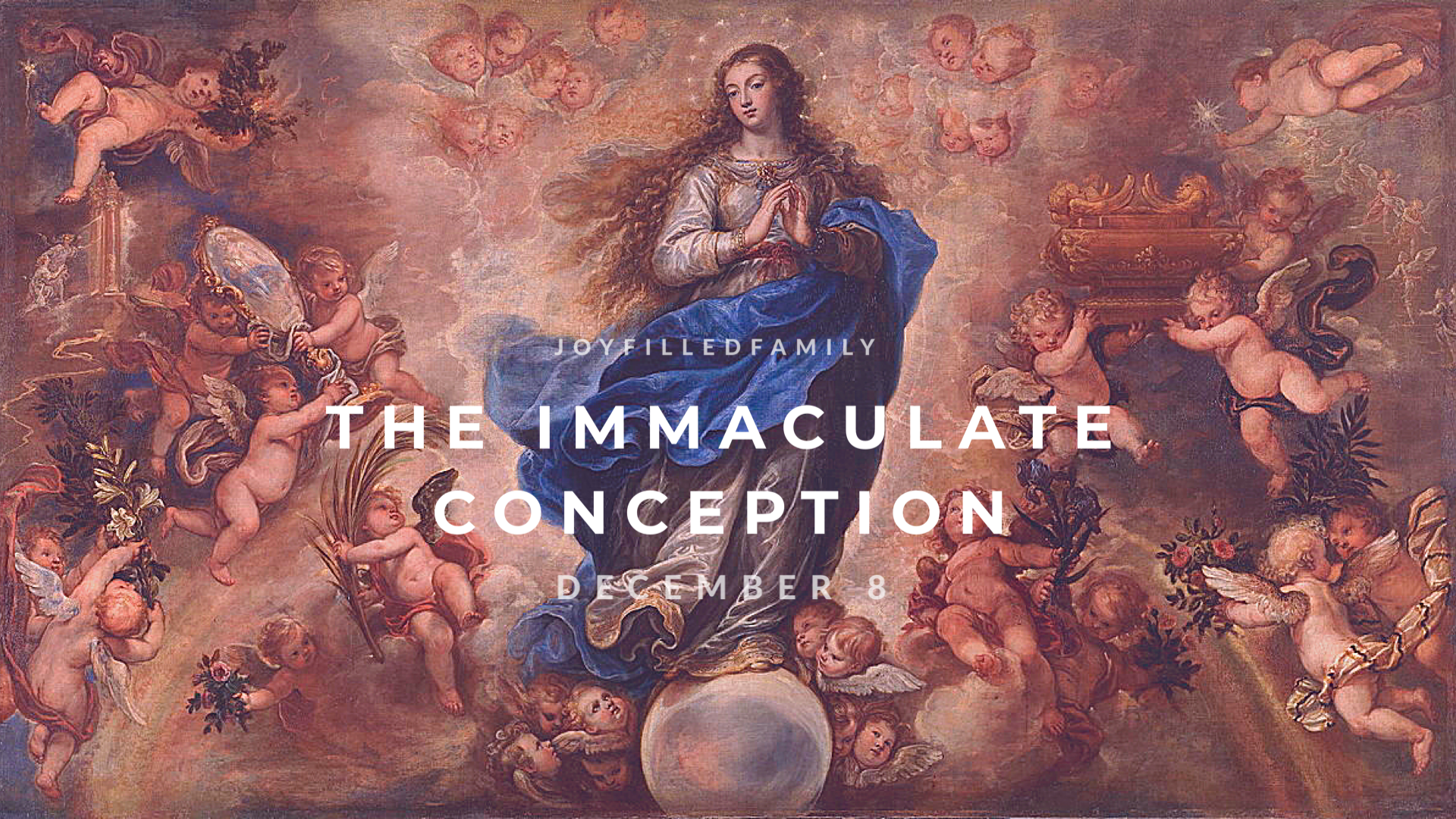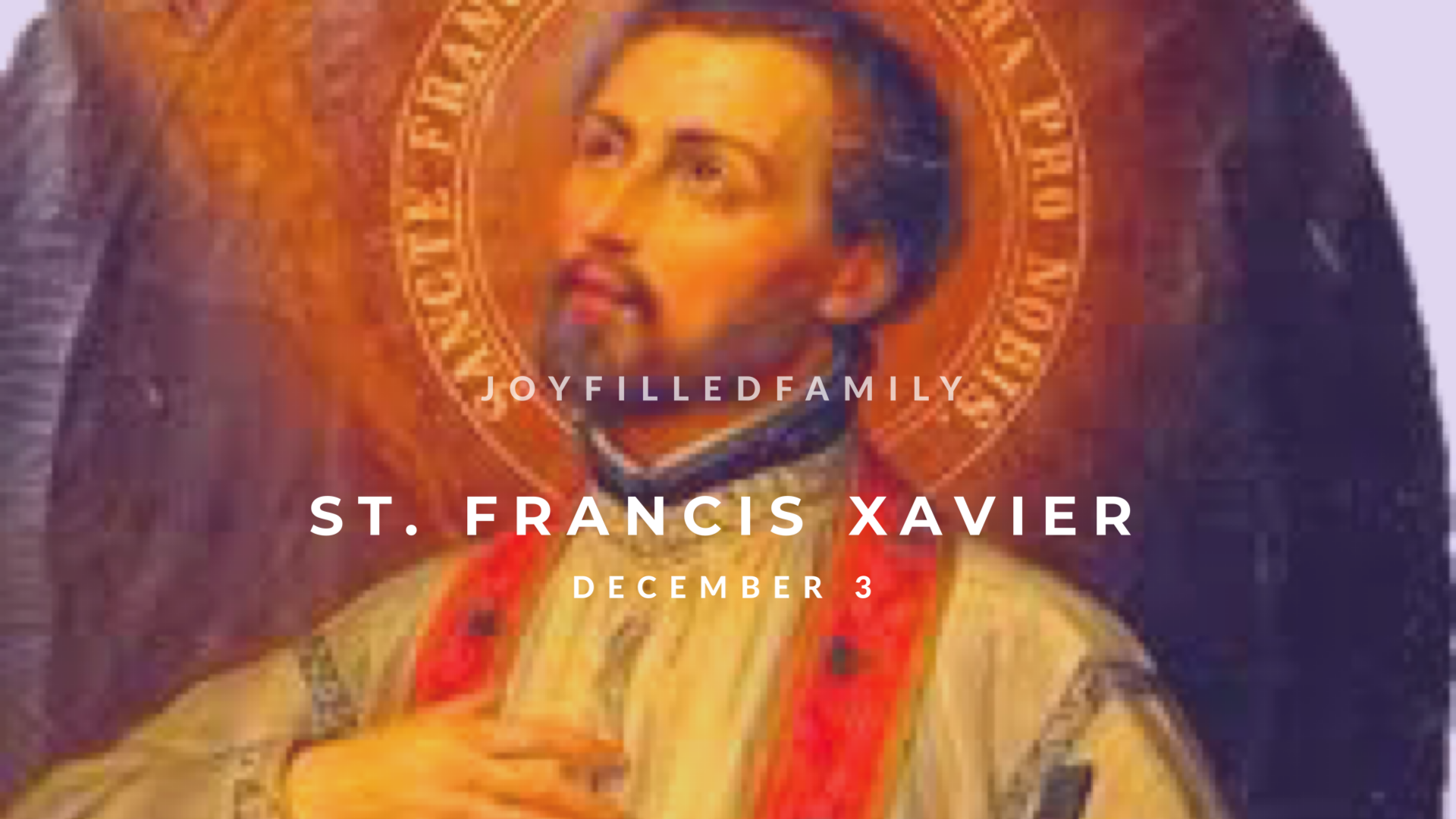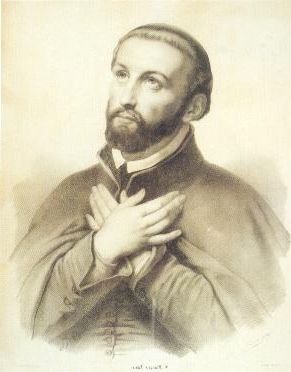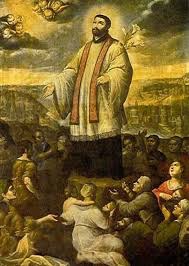We start our days with mornings prayers and an introduction to the saint of the day. We also invite the children to recall our feast day celebration, which my older children hesitate to announce for the younger ones who still have not fully caught on.
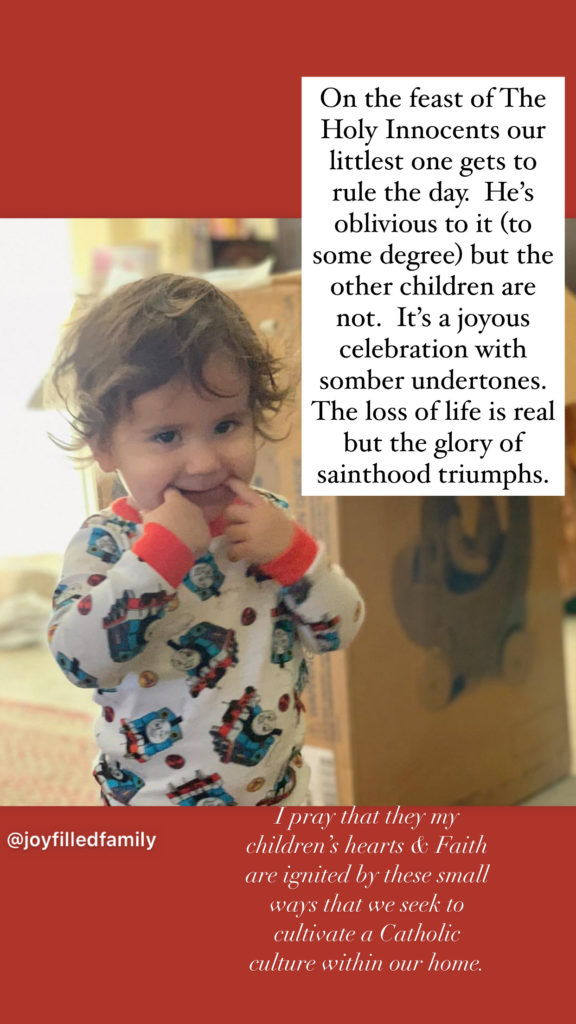
On the Feast of the Holy Innocents, we allow the youngest child to “rule the day.” This year, we allowed the two youngest as it seems to be the end of our baby years and the last year for our #7 to be in that “stage of innocence” as he will receive Our Lord this year.

Father Francis Xavier Weninger (1876) gives the following practical considerations on The Feast of the Holy Innocents. We share it with our children and have a discussion fitting to their ages. Often there’s not a dry eye in the room. We are filled with sorrow, thanksgiving, and pleas to not squander the precious time (life) that He has gifted us.
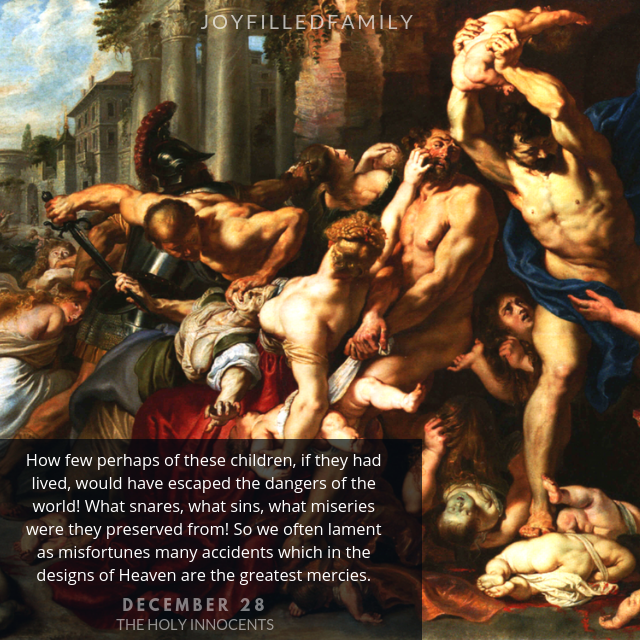
—-How happy were the innocent children to end their lives at so tender an age! Had they lived longer, they might have been among those who cried: “Crucify him! Crucify him!” and have gone to destruction. The parents of these children’ naturally wept and lamented, and believed themselves most unhappy, because their children were torn from them and cruelly slaughtered. They did not recognize the mercy that God showed them. Still, at this day, does the Almighty sometimes take children, by an early death, from their parents. That the latter feel this loss and weep and mourn over it, is but human, and is no sin; but they do wrong if they grieve inordinately, or even -murmur or complain against the decrees of the Almighty. They ought to think, Gci is the Lord of life and death; He has given the children; He can take them away again* without wronging any one. They should also think that an early death may be a great benefit to themselves and to their children; for, God perhaps foresaw’ that the parents would neglect the education of their children and thus condemn themselves, or that the children would lead a Wicked life, and thus go to eternal perdition. By taking them thus early, He benefits the children and the parents, and deserves thanks instead of complaint. At least, the parents ought to submit to the divine will, and say from the depth of their hearts, what they have often said with their lips: “O Lord, thy will be done!”
—-Herod undoubtedly did great sin in massacring, without just reason, so many innocent children. In our days, there are many who deprive an innocent child of its mortal life, or even endeavor to deprive it of the life to come. To the former of these belong all mothers, who destroy the fruit of their womb by imprudence or even by crime. In the same manner, those men, who ill-treat their wives, frequently become guilty of the same sin. Mothers again are guilty of it, who crush their children in sleep.
To the second class belong those Who murder their children before they are baptized, for without baptism they can never enter the kingdom of heaven. Secondly, all those persons who give scandal to innocent youth, either in word or deed; for example, when they speak impurely in their presence, sing bad songs, behave immodestly, or even entice them to do wrong.
Thirdly, according to Saint Chrysostom, those parents belong to this class, who, either by their example, or by neglecting to instruct their children, are the cause of many sins which their children commit. Further, those who do not duly punish-their children, and who do not earnestly endeavor to prevent their doing wrong.
Lastly, all those who lead their own children into the path of wickedness and sin. All these are child-murderers. Of the latter, Saint Chrysostom says: “Thus, parents, I say, are more vicious, more cruel than child-murderers; for, a murderer of children, as Herod was, separates only the body from the soul; while the others give the souls and bodies of their children to eternal flames. Further, those who are killed would have died in the course of time, though they had not been murdered; while children neglected by their parents, might have avoided eternal death, had not the wickedness of their parents prepared it for them.
Besides this, the general resurrection would have compensated for the bodily death, while the death and destruction of the soul nothing can restore. A child, condemned by the parent’s fault, has no hope of salvation, but has to suffer eternal pains. Hence I am right in saying that such parents are worse than child-murderers.” As there is no doubt that all the above-mentioned classes of people commit great sin, they make themselves guilty of eternal punishment.
Those who give scandal to the young should remember the terrible menace of Jesus Christ: “He that shall scandalize one of these little ones that believe in Me, it were better for him that a mill-stone should be hanged about his neck and that he should be drowned in the depth of the sea. Woe to that man by whom scandal comes!” “Woe to him,” exclaimed, one day, a dying man, “who has led me to evil.” “And how will these corrupted souls, one day, cry for vengeance at the throne of the Almighty,”, says Saint Thomas of Villanova; “how will they rage in hell against him who corrupted them or gave them scandal!” They also, who murder only the bodies of their children, will have to render an account, and may expect terrible punishment. The blood of their children will cry for vengeance against them, as did the blood of Abel against Cain. “The voice of thy brother’s blood cries to me from the earth.” (Genesis 4)

We also took the time to read another gem that we recently added to our Advent & Christmas Book collection, The Spider Who Saved Christmas from Raymond Arroyo and Sophia Institute Press.

This book takes a glorious spin on a traditional legend from the Ukraine and is absolutely wonderful to bring all ages deeper into the Christmas season.
It was the perfect read aloud for us (17 to 3 years old) today on The Feast of the Holy Innocents as it covers the Holy Family fleeing for safety upon the decree of King Herod to kill all infant boys.
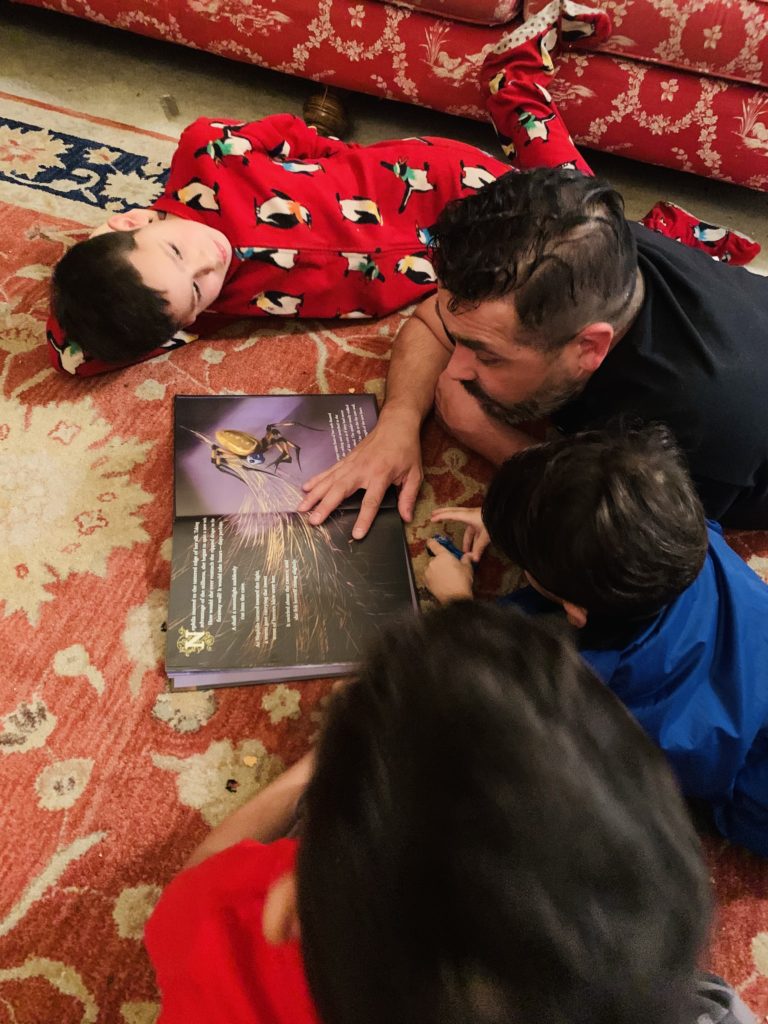
If you weren’t able to order the book in time for Advent or this Feast Day, I welcome you to enjoy the audio read aloud below & encourage you to get your copy for the Christmas Season (which ends Feb. 2).
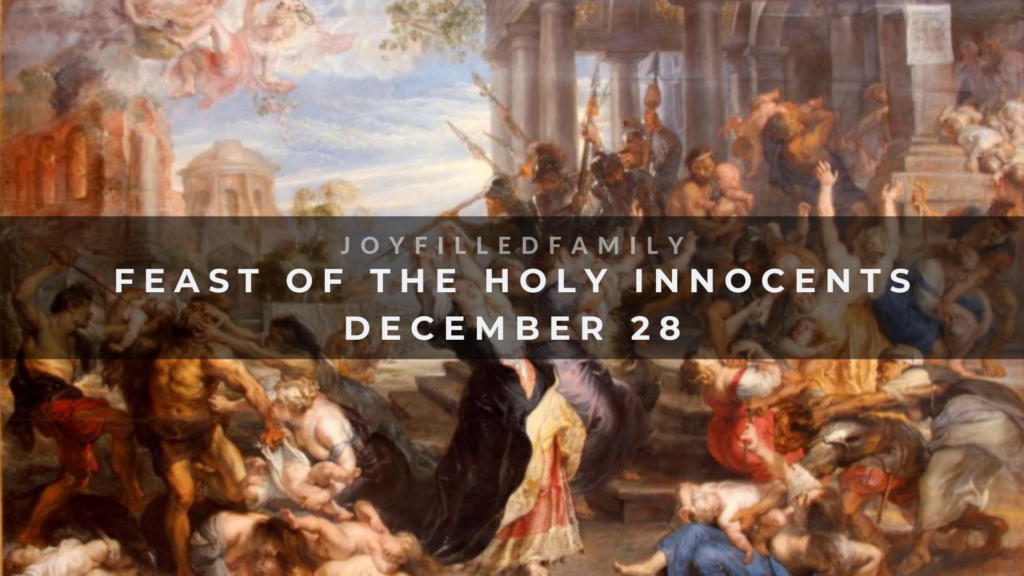
The feast of the beloved Disciple is followed by that of the Holy Innocents. The Crib of Jesus, where we have already met and venerated the Prince of Martyrs and the Eagle of Patmos, has today standing round it a lovely choir of little Children, clad in snow-white robes, and holding green branches in their hands.
